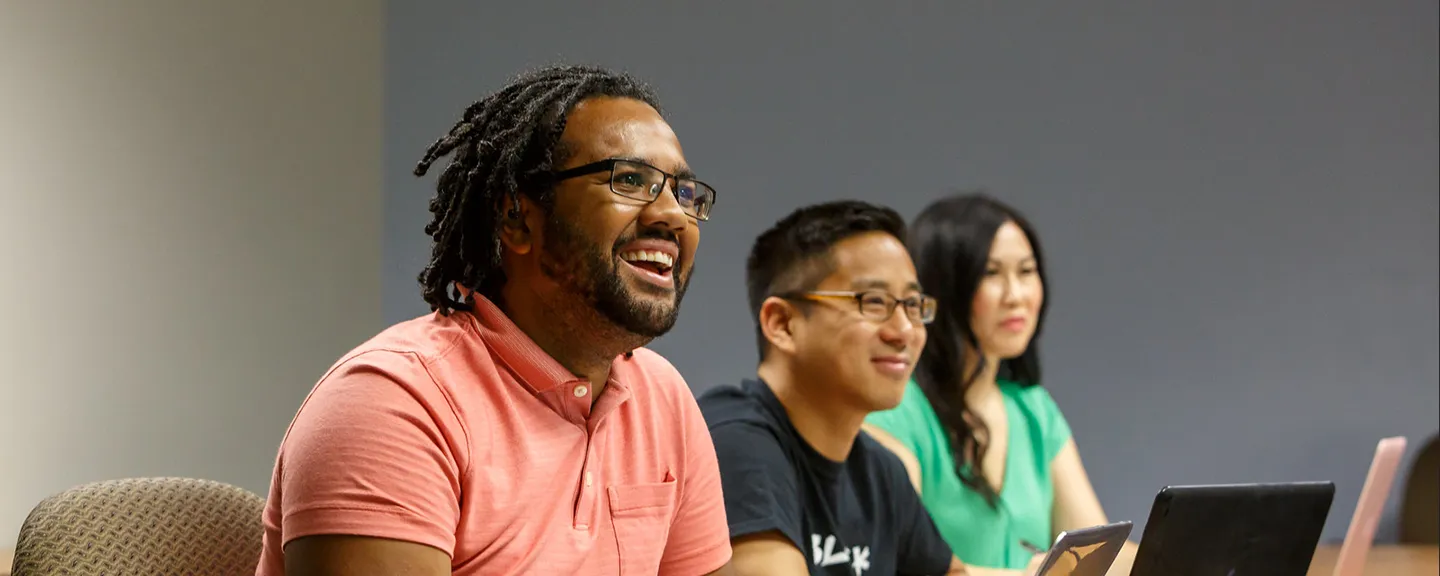- Home
- >
- APU Articles
- >
- News Article
Benefits of Graduate Programs: Discover Your Calling in Graduate School
November 10, 2021 | Written By Ashley Eneriz

Here’s a closer look at how a graduate program can do more than just shape your career—it can shape your calling and purpose.
A Graduate Program Can Open Up New Doors
You never know when God might lead you down a different path in life.
Azusa Pacific University alumni Brayden Stanton, MSN '19, originally pursued a graduate degree in psychology to advance his education and career as a clinical psychologist. Stanton said he chose the school’s MS in Research Psychology and Data Analysis program to increase his experience in and exposure to the field. “Plus, I thought that learning statistics and research methods would increase my chances of getting into a doctoral program,” he said.
Not only did Stanton complete the program in one year, but he also found a new passion for data analysis and conducting research. This newfound love led him to his current position as a research scientist for Gotara, a global career network for women in STEM.
“The one piece of wisdom I’d share with anyone else considering a master’s or doctoral program is to stay open to experiences and potential career avenues,” Stanton explained. “Like me, you may go into a program aiming to do one thing, but when you graduate, you go on to do something unexpected and exciting.”
Getting More Meaning Out of Life
In addition to advancing your career, degree programs can also provide once-in-a-lifetime opportunities. For instance, Mary Shepard Wong, PhD, professor and director of TESOL field-based programs, has worked closely with Teaching English to Speakers of Other Languages (TESOL) graduate students.
“Some of the most transformational learning I have experienced among students at APU is on the study abroad trips in which my husband and I and about a dozen students traveled for three weeks together, exploring the languages and cultures of Thailand and Myanmar, while also teaching in refugee camps and seminaries,” Wong said. She also noted that the trips and overall coursework challenge students to confirm their convictions, while being open to seeing how some of their beliefs may need to be more deeply examined.
Even if a Master of Arts in TESOL isn’t your specific calling, having the chance to study abroad and serve in internships through a graduate program can lead to experiences that shape the rest of your life. These include Fulbright awards and English Language Fellows, which some of our MA TESOL alumni have received.
It’s Never Too Late to Pursue a Graduate Program
“Graduate students are different from undergrads in significant ways,” Wong said. “Many grad students are parents or individuals with full-time jobs and multiple responsibilities.”
In fact, many students enter an APU graduate program after having children or relocating. “Our program offers flexible formats for campus courses, online courses, and field-based options that students can move in and out of easily, allowing for ‘life’ to continue as they study and earn their degrees,” Wong explained.
Whether you just received your bachelor’s degree or are considering going back to school after several years, APU offers over 100 faith-centered graduate and professional programs that can fit your schedule.
Thinking you want to pursue a graduate degree and enroll in one of the programs available through Azusa Pacific University? Check out the school’s website to discover guidance around the application process and insight into how setting career goals can help you navigate the graduate school experience.